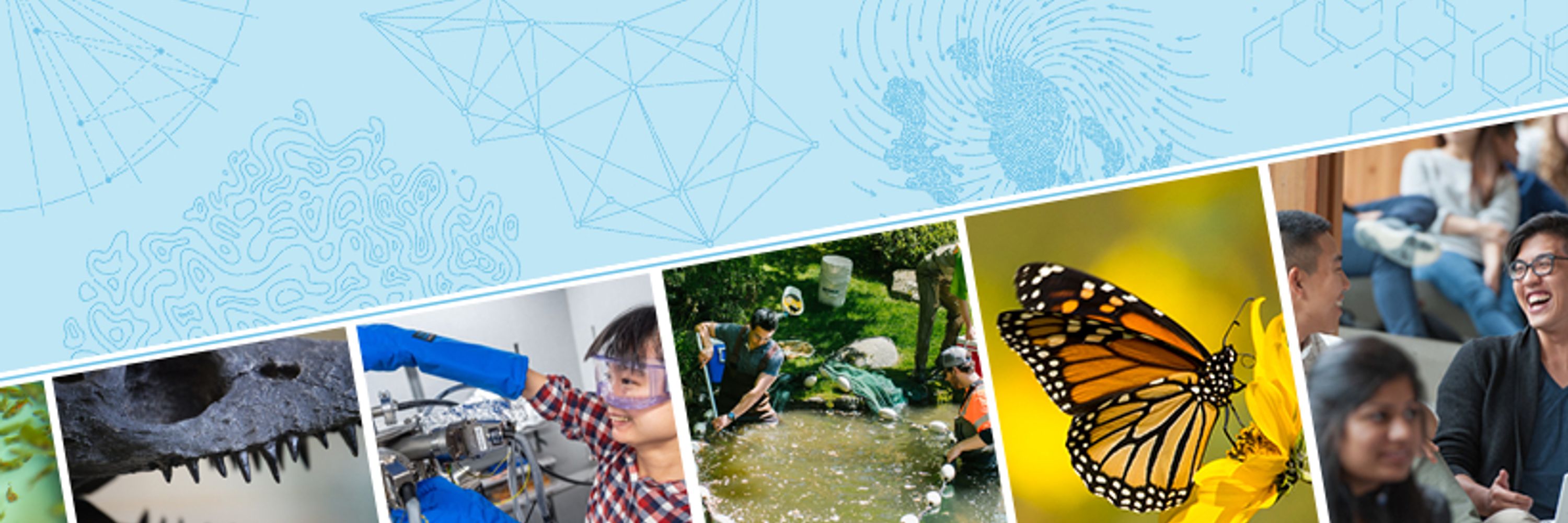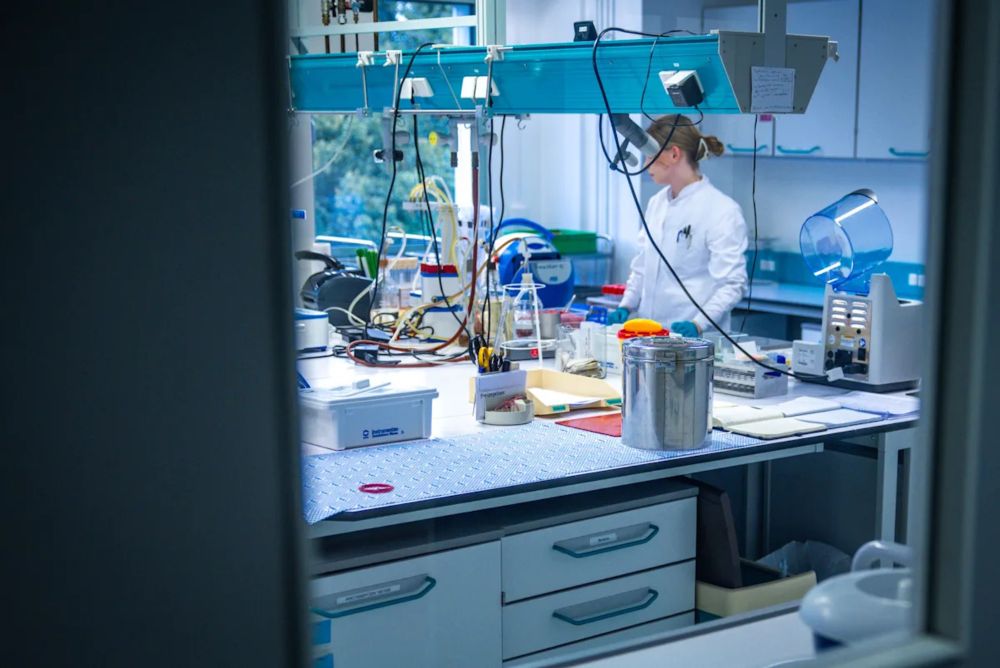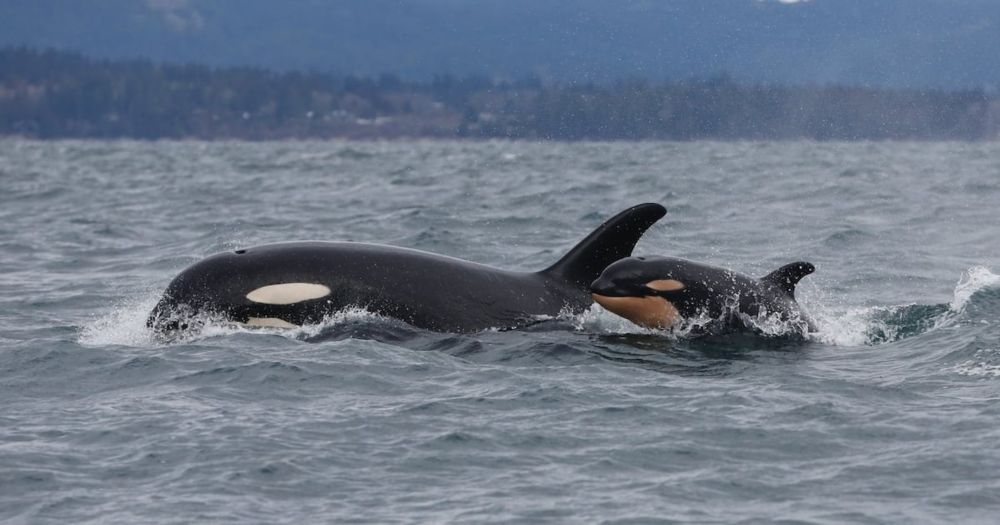
UBC Science
@science.ubc.ca
News and events from the Faculty of Science at the University of British Columbia.
“Now we can say with confidence that the West Coast transients are split along an east-west divide. They eat different things, hunt in different areas, & very rarely spend time with one another," said marine ecologist Josh McInnes of @ubcoceans.bsky.social.
oceanographicmagazine.com/news/new-stu...
oceanographicmagazine.com/news/new-stu...

New study splits West Coast killer whales into two populations - Oceanographic
Research reveals West Coast transient killer whales are two subpopulations - inner and outer coast - with different diets, ranges, and lives.
oceanographicmagazine.com
November 10, 2025 at 5:18 PM
“Now we can say with confidence that the West Coast transients are split along an east-west divide. They eat different things, hunt in different areas, & very rarely spend time with one another," said marine ecologist Josh McInnes of @ubcoceans.bsky.social.
oceanographicmagazine.com/news/new-stu...
oceanographicmagazine.com/news/new-stu...
Reposted by UBC Science
West Coast mammal-eating killer whales aren’t one big family—they’re two distinct communities that rarely mix.
New @ubcoceans.bsky.social research reveals their unique diets, habitats and behaviors.
buff.ly/3Fq7Ytc
New @ubcoceans.bsky.social research reveals their unique diets, habitats and behaviors.
buff.ly/3Fq7Ytc

West Coast mammal-eating killer whales are two distinct communities that rarely mix - UBC News
New research reveals West Coast mammal-eating killer whales form two distinct communities—inner and outer coast transients—that rarely mix, with unique diets, habitats and behaviors.
news.ubc.ca
November 6, 2025 at 7:09 PM
West Coast mammal-eating killer whales aren’t one big family—they’re two distinct communities that rarely mix.
New @ubcoceans.bsky.social research reveals their unique diets, habitats and behaviors.
buff.ly/3Fq7Ytc
New @ubcoceans.bsky.social research reveals their unique diets, habitats and behaviors.
buff.ly/3Fq7Ytc
Reposted by UBC Science
Want to hear realistic, uplifting takes on how we can collectively overcome the climate and nature crisis?
Check out Season 2 of Small Planet Heroes, a podcast hosted by IRES's Dr. Kai Chan!
www.cosphere.net/podcast
Check out Season 2 of Small Planet Heroes, a podcast hosted by IRES's Dr. Kai Chan!
www.cosphere.net/podcast
November 5, 2025 at 5:04 PM
Want to hear realistic, uplifting takes on how we can collectively overcome the climate and nature crisis?
Check out Season 2 of Small Planet Heroes, a podcast hosted by IRES's Dr. Kai Chan!
www.cosphere.net/podcast
Check out Season 2 of Small Planet Heroes, a podcast hosted by IRES's Dr. Kai Chan!
www.cosphere.net/podcast
“The amount of dust in galaxies and their dust temperatures have been decreasing for billions of years, which means we’re past the epoch of maximum star formation," said UBC cosmologist Dr. Douglas Scott. @ubcphas.bsky.social
science.ubc.ca/news/2025-11...
science.ubc.ca/news/2025-11...

Astronomers release best measurements of galaxy temperatures, star formation yet
UBC astronomers release a sneak peak of the most accurate measurements yet of key aspects of the Universe, including star formation rates.
science.ubc.ca
November 5, 2025 at 5:27 PM
“The amount of dust in galaxies and their dust temperatures have been decreasing for billions of years, which means we’re past the epoch of maximum star formation," said UBC cosmologist Dr. Douglas Scott. @ubcphas.bsky.social
science.ubc.ca/news/2025-11...
science.ubc.ca/news/2025-11...
"It’s unusual enough to qualify as what’s called a marine heat wave,” said Dr. Christopher Harley about the return of the North Pacific blob. “I hate to say it, it’s the new normal and I’m starting to get used to it."
@ubcoceans.bsky.social @zoology.ubc.ca
globalnews.ca/news/1150938...
@ubcoceans.bsky.social @zoology.ubc.ca
globalnews.ca/news/1150938...

The North Pacific heat ‘blob’ is back and experts are worried about marine life | Globalnews.ca
'This blob is a couple of degrees warmer than what we would expect for this particular time of year,' Christopher Harley, a professor of marine ecology, said.
globalnews.ca
November 4, 2025 at 5:39 PM
"It’s unusual enough to qualify as what’s called a marine heat wave,” said Dr. Christopher Harley about the return of the North Pacific blob. “I hate to say it, it’s the new normal and I’m starting to get used to it."
@ubcoceans.bsky.social @zoology.ubc.ca
globalnews.ca/news/1150938...
@ubcoceans.bsky.social @zoology.ubc.ca
globalnews.ca/news/1150938...
Reposted by UBC Science
We have TWO post-doctoral fellowships in the Biodiversity Centre at UBC next year! Am happy to chat if you might want to be hosted in my lab. biodiversity.ubc.ca/training-and... Deadline January 15th!

November 3, 2025 at 5:16 PM
We have TWO post-doctoral fellowships in the Biodiversity Centre at UBC next year! Am happy to chat if you might want to be hosted in my lab. biodiversity.ubc.ca/training-and... Deadline January 15th!
In the latest issue of "Matter," Dr. Curtis Berlinguette's team of UBC chemists describe AdaCarbon—a self-driving lab that's three times faster than manual workflows and establishes a scalable path for CO2-to-fuel conversion: doi.org/10.1016/j.ma...
@chem.ubc.ca
@chem.ubc.ca

November 3, 2025 at 5:06 PM
In the latest issue of "Matter," Dr. Curtis Berlinguette's team of UBC chemists describe AdaCarbon—a self-driving lab that's three times faster than manual workflows and establishes a scalable path for CO2-to-fuel conversion: doi.org/10.1016/j.ma...
@chem.ubc.ca
@chem.ubc.ca
Congratulations to Dr. Zachary Hudson on being awarded an Arthur B. McDonald Fellowship. His research focuses on designing light-emitting materials for use in electronics, healthcare, and sustainable packaging.
@chem.ubc.ca
science.ubc.ca/news/2025-10...
@chem.ubc.ca
science.ubc.ca/news/2025-10...

UBC chemist awarded national early-career fellowship
A UBC chemist developing advanced materials transforming how we diagnose disease and reduce waste has been awarded an Arthur B. McDonald Fellowship.
science.ubc.ca
October 31, 2025 at 4:25 PM
Congratulations to Dr. Zachary Hudson on being awarded an Arthur B. McDonald Fellowship. His research focuses on designing light-emitting materials for use in electronics, healthcare, and sustainable packaging.
@chem.ubc.ca
science.ubc.ca/news/2025-10...
@chem.ubc.ca
science.ubc.ca/news/2025-10...
A new study sheds light on the intricate dynamics within honey bee colonies. Virus infections in queen bees can lead to reproductive decline and less production of a key pheromone, which worker bees use as a cue to overthrow and replace an underperforming queen.
science.ubc.ca/news/2025-10...
science.ubc.ca/news/2025-10...

Why honey bees overthrow their queen
UBC research shows how queen viral infections disrupt colony stability— and identifies a key pheromone that could help maintain cohesive, productive hives.
science.ubc.ca
October 30, 2025 at 5:21 PM
A new study sheds light on the intricate dynamics within honey bee colonies. Virus infections in queen bees can lead to reproductive decline and less production of a key pheromone, which worker bees use as a cue to overthrow and replace an underperforming queen.
science.ubc.ca/news/2025-10...
science.ubc.ca/news/2025-10...
Reposted by UBC Science
Researchers from UBC Chemistry & the Vancouver Prostate Centre have developed a new method to design safer, more targeted cancer drugs. 'baited-SELEX' uses DNA molecules to mimic antibodies & selectively target cancer cells while minimizing harmful side effects.
🔗 www.chem.ubc.ca/dna-guided-p...
🔗 www.chem.ubc.ca/dna-guided-p...

October 28, 2025 at 11:14 PM
Researchers from UBC Chemistry & the Vancouver Prostate Centre have developed a new method to design safer, more targeted cancer drugs. 'baited-SELEX' uses DNA molecules to mimic antibodies & selectively target cancer cells while minimizing harmful side effects.
🔗 www.chem.ubc.ca/dna-guided-p...
🔗 www.chem.ubc.ca/dna-guided-p...
UBC Science is hiring a Digital Communications Specialist to enhance our online presence and reputation by creating inspirational web and other digital content, and support the development and operation of the Faculty’s digital communication initiatives and channels.
bit.ly/4hwWZn2
bit.ly/4hwWZn2

October 28, 2025 at 5:19 PM
UBC Science is hiring a Digital Communications Specialist to enhance our online presence and reputation by creating inspirational web and other digital content, and support the development and operation of the Faculty’s digital communication initiatives and channels.
bit.ly/4hwWZn2
bit.ly/4hwWZn2
Reposted by UBC Science
UBC Computer Science invites applications for up to two full-time tenure-track positions with the following priority areas: visualization, robotics, reinforcement learning, data management, and data mining. Applications are due Wed Dec 10, 2025. Learn more: www.cs.ubc.ca/our-departme...

October 23, 2025 at 12:43 AM
UBC Computer Science invites applications for up to two full-time tenure-track positions with the following priority areas: visualization, robotics, reinforcement learning, data management, and data mining. Applications are due Wed Dec 10, 2025. Learn more: www.cs.ubc.ca/our-departme...
Reposted by UBC Science
Drs. Chris Harley and Steven Hallam (@zoology.ubc.ca @ubcmicroimmuno.bsky.social ) commented on the effects of marine heat waves or 'blobs' via @vancouversun.bsky.social

The blob is back in the Northern Pacific Ocean: What does that mean for B.C.?
Climate scientists say the marine heat wave could be altering the jet stream leading to a wetter than normal winter. Find out more.
theprovince.com
October 27, 2025 at 8:00 PM
Drs. Chris Harley and Steven Hallam (@zoology.ubc.ca @ubcmicroimmuno.bsky.social ) commented on the effects of marine heat waves or 'blobs' via @vancouversun.bsky.social
UBC researchers identified a bacterium that's a key player converting food waste into renewable natural gas. "Converting waste to methane is a cooperative process involving multiple interacting microbes," says Dr. Steven Hallam. @ubcmicroimmuno.bsky.social
www.technologynetworks.com/immunology/n...
www.technologynetworks.com/immunology/n...

Researchers Discover New Bacterium That Turns Food Waste Into Energy
Discover how a previously unknown bacterium in the <i>Natronincolaceae</i> family plays a crucial role in producing renewable natural gas.
www.technologynetworks.com
October 27, 2025 at 4:32 PM
UBC researchers identified a bacterium that's a key player converting food waste into renewable natural gas. "Converting waste to methane is a cooperative process involving multiple interacting microbes," says Dr. Steven Hallam. @ubcmicroimmuno.bsky.social
www.technologynetworks.com/immunology/n...
www.technologynetworks.com/immunology/n...
Reposted by UBC Science
Applications are now open for two two-year UBC Biodiversity Postdoc Fellowships biodiversity.ubc.ca/training-and.... $77,000 /y + benefits and $7000 /y research funds.

October 24, 2025 at 8:55 PM
Applications are now open for two two-year UBC Biodiversity Postdoc Fellowships biodiversity.ubc.ca/training-and.... $77,000 /y + benefits and $7000 /y research funds.
"They were talking about reducing light pollution by having this giant light from space," said UBC astronomer Dr. Aaron Boley. "And it really seems like they're trying to suggest that because it's natural sunlight, it's not like pollution.” @ubcphas.bsky.social
www.cbc.ca/news/science...
www.cbc.ca/news/science...

Giant mirrors in space to reflect sunlight at night? No thank you, astronomers say | CBC News
A U.S. company is proposing to 'sell sunlight after dark,' saying it could help power solar farms and provide access to light in emergency situations. Astronomers are not only concerned about what thi...
www.cbc.ca
October 24, 2025 at 6:11 PM
"They were talking about reducing light pollution by having this giant light from space," said UBC astronomer Dr. Aaron Boley. "And it really seems like they're trying to suggest that because it's natural sunlight, it's not like pollution.” @ubcphas.bsky.social
www.cbc.ca/news/science...
www.cbc.ca/news/science...
UBC botanist Dr. Monika Fischer studies the specialized fungi that appear only after fire, the hidden helpers at work underneath the ash laying the groundwork for forest recovery.
@ubcbotany.bsky.social
@ubcbotany.bsky.social
October 23, 2025 at 4:36 PM
UBC botanist Dr. Monika Fischer studies the specialized fungi that appear only after fire, the hidden helpers at work underneath the ash laying the groundwork for forest recovery.
@ubcbotany.bsky.social
@ubcbotany.bsky.social
Congratulations to the five UBC Science researchers announced as new Canada Research Chairs, Drs. Caroline Lemieux, Eva Nichols, Julie Prytulak, Chiara Saffirio and Xin Tang.
@cs.ubc.ca @chem.ubc.ca @ubcmath.bsky.social
science.ubc.ca/news/2025-10...
@cs.ubc.ca @chem.ubc.ca @ubcmath.bsky.social
science.ubc.ca/news/2025-10...

New CRCs include focus on software, AI-driven health research
New CRCs focus on software security, electrocatalysts for carbon recycling, isotope geochemistry, quantum systems, and AI-driven celluar health studies.
science.ubc.ca
October 22, 2025 at 4:48 PM
Congratulations to the five UBC Science researchers announced as new Canada Research Chairs, Drs. Caroline Lemieux, Eva Nichols, Julie Prytulak, Chiara Saffirio and Xin Tang.
@cs.ubc.ca @chem.ubc.ca @ubcmath.bsky.social
science.ubc.ca/news/2025-10...
@cs.ubc.ca @chem.ubc.ca @ubcmath.bsky.social
science.ubc.ca/news/2025-10...
UBC’s department of Computer Science invites applications for up to 2 full-time tenure-track positions. The department is particularly interested in researchers in: visualization, robotics, reinforcement learning, data management, and data mining. @cs.ubc.ca
science.ubc.ca/about/careers
science.ubc.ca/about/careers

October 21, 2025 at 5:07 PM
UBC’s department of Computer Science invites applications for up to 2 full-time tenure-track positions. The department is particularly interested in researchers in: visualization, robotics, reinforcement learning, data management, and data mining. @cs.ubc.ca
science.ubc.ca/about/careers
science.ubc.ca/about/careers
Reposted by UBC Science
In the quiet morning light, UBC’s Nitobe Memorial Garden becomes a bridge between worlds.
Curator Ryo Sugiyama shapes a living dialogue between Japan and Canada — one branch, one reflection at a time. 🍃
Read more:
Curator Ryo Sugiyama shapes a living dialogue between Japan and Canada — one branch, one reflection at a time. 🍃
Read more:

Nitobe Memorial Garden: A garden that bridges worlds
At UBC’s Nitobe Memorial Garden, curator Ryo Sugiyama tends a living bridge between Japan and Canada—where light, stillness and cultures meet.
news.ubc.ca
October 21, 2025 at 3:02 PM
In the quiet morning light, UBC’s Nitobe Memorial Garden becomes a bridge between worlds.
Curator Ryo Sugiyama shapes a living dialogue between Japan and Canada — one branch, one reflection at a time. 🍃
Read more:
Curator Ryo Sugiyama shapes a living dialogue between Japan and Canada — one branch, one reflection at a time. 🍃
Read more:
Mirror life could revolutionize human health — or it could spell our doom. “The more I think about this, the more I realize that the real concern ought to be with creating life on this side of the mirror,” says UBC chemist Dr. David Perrin. @chem.ubc.ca
www.yahoo.com/news/article...
www.yahoo.com/news/article...

This experiment could end all life. Or it won’t. Should we try it?
Our reality could have a mirror image — and it has some serious risks and benefits.
www.yahoo.com
October 21, 2025 at 4:32 PM
Mirror life could revolutionize human health — or it could spell our doom. “The more I think about this, the more I realize that the real concern ought to be with creating life on this side of the mirror,” says UBC chemist Dr. David Perrin. @chem.ubc.ca
www.yahoo.com/news/article...
www.yahoo.com/news/article...
Do species interactions kick-start ecological speciation in isolation? New work by #UBC evolutionary biologist Dr. Dolph Schluter looks at stickleback fish populations that evolved in post-glacial lakes with or without sculpin—a fish that competes for resources doi.org/10.1073/pnas...

A species interaction kick-starts ecological speciation in allopatry | PNAS
Adaptation to different environments is thought to play a key role in speciation.
However, speciation typically begins in allopatry, where reproduc...
www.pnas.org
October 17, 2025 at 4:09 PM
Do species interactions kick-start ecological speciation in isolation? New work by #UBC evolutionary biologist Dr. Dolph Schluter looks at stickleback fish populations that evolved in post-glacial lakes with or without sculpin—a fish that competes for resources doi.org/10.1073/pnas...
Reposted by UBC Science
Marine heatwaves are becoming more frequent with global warming, but could they in turn exacerbate climate change? In a new study, Steven Hallam's team reports that spurts of intense ocean warming can impact microbial community structure and carbon cycling: mbim.ubc.ca/news/marine-...

October 16, 2025 at 6:32 PM
Marine heatwaves are becoming more frequent with global warming, but could they in turn exacerbate climate change? In a new study, Steven Hallam's team reports that spurts of intense ocean warming can impact microbial community structure and carbon cycling: mbim.ubc.ca/news/marine-...
“The perception is true that overall our marine mammals have rebounded and they’re doing extremely well, with one exception,” said Dr. Andrew Trites of @ubcoceans.bsky.social. “Southern resident killer whales, despite everything’s being done, have not improved.”
www.ctvnews.ca/vancouver/ar...
www.ctvnews.ca/vancouver/ar...

Most of B.C.’s marine mammals are flourishing, so why aren’t orcas?
While most marine mammal species off the B.C. coast are flourishing, salmon-eating orcas are failing to thrive.
www.ctvnews.ca
October 16, 2025 at 6:39 PM
“The perception is true that overall our marine mammals have rebounded and they’re doing extremely well, with one exception,” said Dr. Andrew Trites of @ubcoceans.bsky.social. “Southern resident killer whales, despite everything’s being done, have not improved.”
www.ctvnews.ca/vancouver/ar...
www.ctvnews.ca/vancouver/ar...
UBC botanist Dr. Santokh Singh explains why B.C.'s trees put on a dimmer show than other provinces, and shares his favourite leaf-viewing spots. @ubcbotany.bsky.social
science.ubc.ca/news/2025-10...
science.ubc.ca/news/2025-10...

How trees recycle nutrients to produce their autumn colours
Why does B.C. put on a dimmer autumn leaf show than other provinces? UBC botanist Dr. Santokh Singh explains, and highlights his favourite leaf-viewing spots.
science.ubc.ca
October 16, 2025 at 4:23 PM
UBC botanist Dr. Santokh Singh explains why B.C.'s trees put on a dimmer show than other provinces, and shares his favourite leaf-viewing spots. @ubcbotany.bsky.social
science.ubc.ca/news/2025-10...
science.ubc.ca/news/2025-10...

